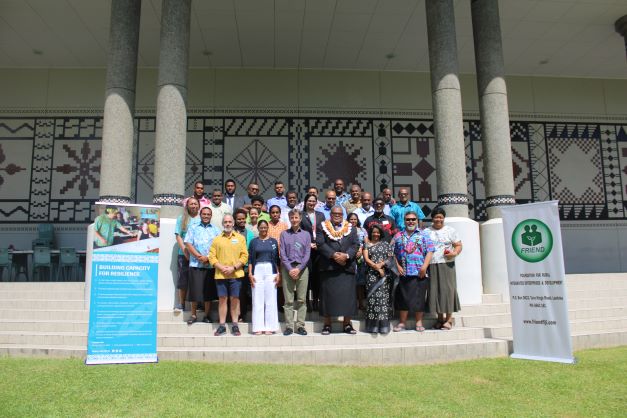Related News

The Pacific Islands region is well known for its communal farming practices and self-sufficiency in fresh agricultural produce, but it also faces a significant challenge of malnutrition throughout the Pacific region.
Non-Communicable Diseases (NCDs), on the other hand, are the leading cause of premature death and disability in the Pacific Islands, and the region has one of the highest rates of type two diabetes and obesity in the world.
The University of the South Pacific (USP) is hosting a two-day Global Community Food and Health (GCFaH) Stakeholders Workshop from the 26 to 27 of January at the Japan-Pacific ICT conference room in USP, bringing together key stakeholders in agriculture, food security, and health.
During his opening remarks, the Honourable Minister of Agriculture and Waterways, Mr Vatimi Rayalu who opened the two-day stakeholder’s workshop stated, “There needs to be a concerted effort from all stakeholders from the Ministry of Agriculture, the Ministry of Health, and good NGOs like FRIEND and the institution that is represented in this project so that we can help not only Fiji but the region to get out of the disease-related status that we are in.”
“Every eight hours, an amputation occurs in Fiji,” he added.
The project is a collaborative interdisciplinary research project that aims to produce a series of outputs that will enable stakeholders to robustly evaluate and compare community-based food production initiatives in the Caribbean, South East Asia, and the Pacific, from the perspective of their impacts on NCD risk, social and economic well-being and the environment.
The GCFaH project is a much larger project on the Intervention Co-creating Community-based Food Production and Household Nutrition in Small Island Developing States (ICOFAN), but it focuses on finding potential ways to improve household diet, nutrition, and food security, as well as reduce the burden of nutrition-related diseases, in small island countries by promoting increased community-based food production (CFP) based on agroecological principles.
The project’s research will be conducted in Fiji, the Philippines, St Vincent, and St Lucia. The University of Exeter is the lead institution with USP and the Foundation for Rural Integrated Enterprises & Development (FRIEND) as partners in Fiji, alongside universities in the Caribbean, Philippines, United Kingdom (UK), and Canada.
The collaborative project is worth approximately €2.9 million. The research is funded by the UK’s National Institute of Health Research using UK aid from the UK Government to support global health research.
About GCFaH
The agroecological approach is becoming a more widely recognised approach that benefits human health and well-being, as well as ecosystem health, which promotes environmental, social, and economic benefits.
The University of Exeter is leading this collaborative project worth approximately €2.9 million.
The leading research partners in Fiji are the University of the South Pacific and the Foundation for Rural Integrated Enterprises and Development (FRIEND).